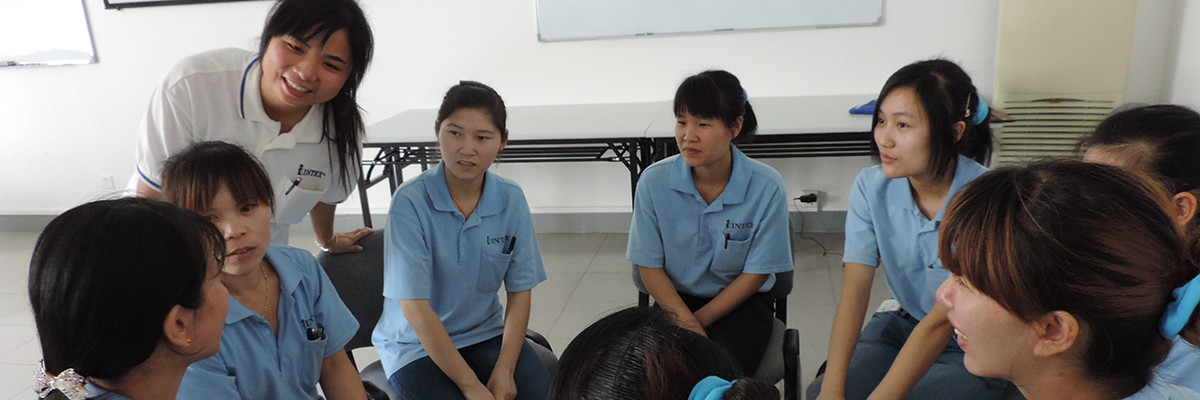
Authors
-
Peder Michael Pruzan-Jorgensen
Former Senior Vice President, BSR
-
Lauren Shields
Former Director, BSR
Donors, NGOs, and local authorities have long recognized that investing in women in low-income countries is key to development goals. Yet the development community does not always consider the private sector as a partner in advancing women’s empowerment. The assumption among development professionals is that corporate activities around women’s empowerment are “window dressing” or are limited to boardroom quotas. However, as businesses develop more ambitious agendas on women’s empowerment at corporate levels and in the emerging markets where they operate, these assumptions are becoming increasingly outdated.
We believe that business can be a formidable force for positive change, and that by integrating women’s empowerment into corporate strategy, business can complement and enhance the work done by governments and NGOs.
A Strategic Approach to Women’s Empowerment
Women touch every aspect of business. For example, they are influential consumers of products and services. One Goldman Sachs study shows that when women’s spending and decision-making power increases, they affect consumer trends, such as household spending for family welfare, which has implications for the apparel, childcare, consumer durables, education, financial services, food, and healthcare sectors. In the workforce, the advancement of women is also crucial to business success. Companies with women in leadership outperform their competitors, with a McKinsey study finding a 55 percent increase in average company earnings before interest and tax.
As businesses begin to prioritize women’s empowerment, they should be careful not to make it a “niche” issue that only the sustainability team or executive leadership addresses. Defining corporate priorities for women’s empowerment requires a strategic approach that weighs both existing initiatives and company priorities.
One good place to start is the Women’s Empowerment Principles (WEPs), a joint initiative of UN Women and the UN Global Compact. The WEPs provide tools and resources for businesses seeking to define a corporate strategy (BSR serves on the leadership group of the initiative), and signing the WEPs is one way to demonstrate corporate commitment to gender equality. The WEPs also serve as a community of best practice for business and other stakeholders working on women’s empowerment to share challenges and successes.
Integrating Women’s Empowerment into the Business
Once companies have made the decision to prioritize women’s empowerment, they should define how to support women through their core activities. As we emphasize in BSR’s Business Leadership for an Inclusive Economy program, companies can focus on three areas:
1. Promoting decent and empowering jobs for women throughout the value chain. Good jobs drive business success by allowing companies to attract and retain the best talent, which provides the foundation for innovation, operational excellence, and stability of supply—all critical to business success. Ensuring employees along the full value chain are healthy, respected, and well-paid results in reduced absenteeism, higher productivity, and better relations between workers and management.
ANN INC. has built on its strategic commitment to women by signing on to the WEPs and expanding its participation in BSR’s HERproject. The company has taken a holistic and integrated approach through its 100,000 Women Commitment, targeting three areas for action: health and well-being, financial literacy, and workplace empowerment. By 2018, ANN INC. will provide education and training to 100,000 women in its supply chain. In addition, the company has revised its supplier code of conduct to ensure that the company and its suppliers share a vision to support women.
2. Designing products and services to address women’s unique needs. Business plays a role in providing access to goods and services that help women improve their living standards and increase their mobility and potential. Companies’ product design and development teams should consider how their goods, services, and technologies can offer both benefits and risks to women. Additionally, product development teams should use innovative distribution channels to reach women even in remote communities.
Standard Chartered has identified women as powerful yet overlooked consumers who have specific needs in the financial services they use. The bank developed the Diva Club account, designed specifically for female consumers in Africa. In addition to addressing banking convenience and linking to lifestyle benefits, the account responds to customer demands for networking opportunities and joint savings clubs with other women. A focus on women has helped Standard Chartered differentiate itself from its peers and connect with to its female consumers.
3. Working with local businesses to integrate women’s empowerment. Companies based in developing countries that serve as suppliers, contractors, and distributors for global or domestic markets should promote responsible employment practices, including gender diversity, equal pay for equal work, safe and healthy workplaces free of harassment and discrimination, and opportunities for women to advance. In turn, global businesses should work with their suppliers to build capacity at the local level and engage local communities.
Vegpro Group, a Kenyan supplier for Marks & Spencer, has made investments in women’s health, including sexual and reproductive health, by ensuring safe working conditions and access to health services for its workers. The integrated program, implemented in partnership with BSR, provides health training and improves clinic services and nurse capacity to meet workers’ health needs. Through the program, the company can play an active role in women’s empowerment in Kenya and also deepen its relationship with international buyers.
Once a company identifies women’s empowerment as a priority and integrates women’s empowerment into core business activities, the next step is to build strategic partnerships with donors and other stakeholders. Partnerships that harness the strengths of both business and the public sector are crucial to ensuring that economic progress in developing countries is linked to individual prosperity, gender equality, and shared opportunity.
BSR’s latest sustainability insights and events straight to your inbox.
Let’s talk about how BSR can help you to transform your business and achieve your sustainability goals.